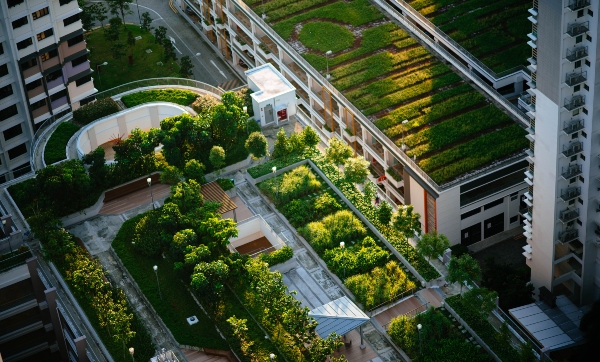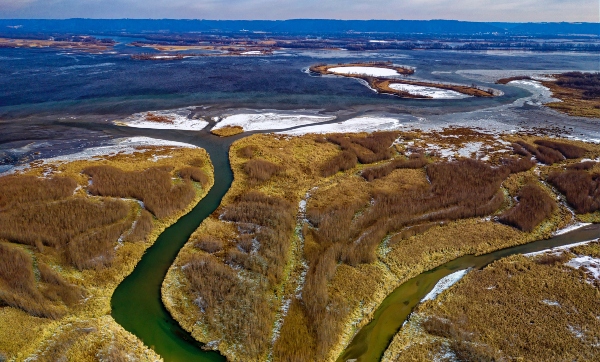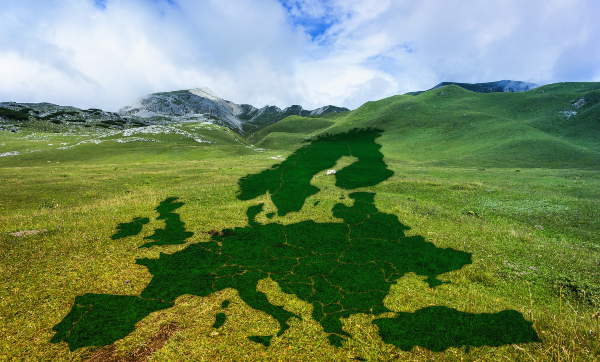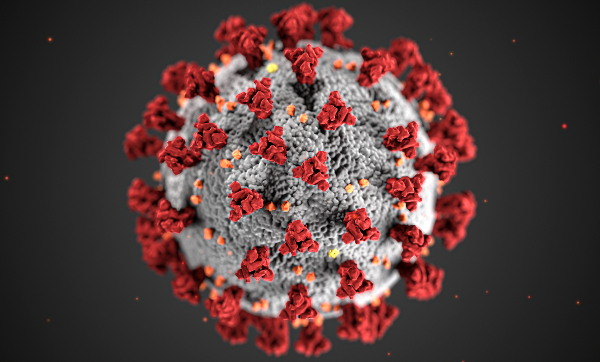Horizon is a funding programme managed by the European Commission to support and promote research in the European research area. The current working programme is Horizon Europe, which reached a total of more than 95 billion euros for the 2021-2027 period. It aims to address climate change, achieve the UN Sustainable Development Goals and promote Europe’s competitiveness and growth. Horizon Europe has followed Horizon 2020, which used a total sum of almost 80 billion euros.

PI: Enrica Croda
Duration: 01/01/2024 - 31/12/2028
Funding programme: Horizon Europe
Total budget: € 4.999.960,00
Budget assigned to Ca' Foscari: € 137.900,00
The EUTOPIA_HEALTH project, a EUTOPIA Alliance initiative, aims to create a novel and innovative framework for the integrative academic management of health-related scientific areas, facilitating changes in the academic landscape within the European research area, through a comprehensive institutional transformation. The project targets three Widening countries (Romania, Slovenia, Portugal) of the alliance, that have traditionally lagged behind in health-related domains, striving to overcome funding and publication disparities, and spearheading academic excellence and innovation in these critical domains. Therefore, the project aims to empower institutional transformation by strengthening health-related R&I management capacity, upgrading and adapting R&I management strategies and policies within Widening HEIs in line with the principles of the European research assessment reform.

PI: Stefano Battiston
Duration: 01/01/2025 - 31/12/2027
Funding programme: Horizon Europe
Total budget: € 3.569.837,00
Budget assigned to Ca' Foscari: € 258.900,50
NATURE-3B aims to make a significant contribution by developing (i) Nature-Protecting Benchmarks for investors such as pension funds or insurance akin to EU Paris-Aligned Benchmarks (EU PABs), (ii) a Nature-Protecting Bond framework particularly targeted at municipalities and corporates, and (i) six tools for central banks, ESAs & NCAs . As a consortium including three current members of the EU’s Platform on Sustainable Finance including the Head of its Data Science Hub and lead author of EU PABs, NATURE-3B is uniquely positioned to achieve real world impact. Following the success of EU PABs, which grew beyond €100 billion in assets within less than 3 years (European Commission, 2023), the consortium expects that NatureProtecting Benchmarks can exceed €10bn within three years after the launch.

PI: Stefano Campostrini
Duration: 01/01/2024 - 31/12/2027
Funding programme: Horizon Europe
Total budget: € 5.925.130,00
Budget assigned to Ca' Foscari: € 642.262,50
PLANET4Health provides new knowledge and tools on environment degradation and its impact on human animal and ecosystems health. The project results will support policy making process and citizens awareness on sustainable planetary health, climate and environmental policies and adaptation and mitigation strategies to natural hazards. PLANET4health will develop collaborations from a large variety of organizations from the: environmental and climate science, public health, epidemiology, veterinary medicine, social, political and economic science, engineering, law and ethics, and communication, to produce solid knowledge and tools to facilitate learning and practice on the interaction between the natural system and human health. Four tailor-made case studies will be performed:

PI: Monica Billio
Duration: 01/10/2024 - 30/09/2026
Funding programme: Horizon Europe - LIFE
Total budget: € 1.500.000,00
Budget assigned to Ca' Foscari: € 219.350,00
DeliverEEM aims to accelerate the allocation of private finance to energy efficiency investment through an innovative, integrated Energy Efficient Mortgage (EEM) ecosystem, the foundations of which were laid down under the EU-funded Energy Efficient Mortgages Initiative (EEMI). Built around EEM (and consumer loan) products, the ecosystem is intended to deliver a seamless end-to-end customer journey, optimised market interventions and partnerships that can support results and maximise benefits for consumers. . DeliverEEM will prioritise capacity-building and interaction amongst key value chain actors and ensure sustainability, exploitation and replication of Project results through market demonstration and outreach activities to policymakers and regulatory authorities, the consumer credit industry and a global audience.

PI: Monica Billio
Duration: 01/09/2023 - 31/08/2026
Funding programme: Technical support Instrument - EU funding
Total budget: € 3.999.047,96
Budget assigned to Ca' Foscari: € 1.299.792,13
Website: ESG Uptake
The overall objective of ESG-UPTAKE is to strengthen EU Member States NCAs’ capacity to monitor and address ESG risks in the financial sector. In particular, the project supports a selected group of NCAs in identifying, monitoring and assessing the impact of ESG risks on their respective supervised entities as well as on the entire financial sector, with a view to adopt appropriate supervisory responses and indirectly contribute to the achievement of the overarching EU and national goals in the area of sustainability. To this aim, ESG-UPTAKE enables the uptake and implementation of a risk-based supervisory approach to assess and mitigate ESG and climate risks, complemented by reporting systems, data and methodologies based on best practices.
Moreover, ESG-UPTAKE aims to strengthen public and private awareness and literacy of the challenges of ESG risks and opportunities for capital allocation into sustainable activities, by supporting the development of crosssectoral capacity building exchanges among NCAs, and dissemination of best practices and lessons.

PI: Stefano Battiston
Duration: 01/06/2023 - 30/11/2026
Funding programme: Horizon Europe
Total budget: € 4.587.912,50
Budget assigned to Ca' Foscari: € 155.581,25
ACCREU will contribute to the just transition towards climate resilience in the EU, its Member States, and regions, by co-creating and co-delivering with a wide array of stakeholders, new knowledge and actionable insights that connect the challenges of adaptation and mitigation with the multiple and new challenges our society is facing. At the scientific level, it will provide a comprehensive, integrated, co-created, socio-economic evaluation of future climate risk under different adaptation and mitigation scenarios, across European countries, sectors, households, and business types. Specific attention will be paid to non-market impacts on biodiversity, ecosystems, and health. ACCREU will advance models and methods for climate risk assessment, and integrated adaptation decisionmaking.
To ensure effective uptake and long-term use of its results, the co-designed applied case studies will involve EU-level stakeholders, such as Directorate-Generals, the JRC, the EEA, the Mission Adaptation, as well as local practitioners, businesses, and authorities.

PI: Monica Billio
Duration: 01/11/2022 - 31/10/2025
Funding programme: Life
Total budget: € 1.472.500,00
Budget assigned to Ca' Foscari: € 128.000,00
The project seeks to enhance researchers’ knowledge, skills, and competence for policy engagement, thereby supporting effective knowledge transfer for evidence-based policy-making. The project will pilot and evaluate policy-dialogue schemes and develop a toolkit that can guide and empower researchers to interact and communicate with decision-makers and policy professionals, to build networks with policy-makers, and to gain awareness and understanding of policy-making processes. Additionally, the project will strengthen universities' institutional capacities of policy engagement as they will be able to offer innovative trainings in these areas for researchers, students, and research managers. ENGAGEgreen will pilot innovative science-policy dialogue initiatives to build long-term networks between scientists and policy-making professionals and create best practice examples. A virtual toolkit and related training sessions will inform researchers, research managers, and students about instruments and structures of policy engagement in the areas of green and digital transitions.

PI: Nicola Camatti
Duration: 01/10/2022 - 30/09/2025
Funding programme: Horizon Europe
Total budget: € 1.499.999,00
Budget assigned to Ca' Foscari: € 30.000,00
DANUBIUS-IP project brings together 25 experienced partners from 14 countries from across Europe in a consortium with complimentary areas of multi-disciplinary expertise across the freshwater and marine research fields. The project specifically seeks to address recommendations from the recent ESFRI and High-Level Expert Group reports (on DANUBIUS-RI) and make a significant contribution to the expected outcomes and wider impacts of the Horizon Europe Programme. As such the project considers the importance of sustainability of financial commitments, the need to test the funding model and to enhance the visibility of the RI. DANUBIUS-IP will further demonstrate the efficacy of an integrated and interdisciplinary approach embracing a 'river-sea continuum' perspective to fill current gaps in the Research and Innovation landscape to address key societal challenges in these environments impacted by anthropogenic pressures and climate change.

PI: Carlo Giupponi
Duration: 01/10/2021 - 30/09/2026
Funding programme: Horizon 2020
Total budget: € 23.631.576,20
Budget assigned to Ca' Foscari: € 517.205,00
WaterLANDS aims to enable an upscaling of the restoration of wetlands. Socio-economic factors, insufficient stakeholder engagement, lack of government commitment, lack of funding and inadequate exchange of knowledge of restoration methods have all been identified as barriers to successful restoration. Consequently, most restoration has been modest in scale, has occurred mainly where there is a single landowning or responsible organisation, and has often been undertaken principally for reasons of conservation. WaterLANDS will work to overcome these barriers. It includes both Action and Knowledge Sites, the former being the object of restoration upscaling, and the latter a source of best practice experience and knowledge. To provide for local support and sustainability, it will aim for the co-design of restoration with the on-going engagement of communities and stakeholders. It will investigate best practice in ecological restoration which meets both biodiversity and social objectives and for which restoration trajectories are specific to the physical and cultural context of the Action Sites. It will propose supportive governance structures appropriate to this process and to local and national circumstances. It will identify business models, economic incentives and international funding sources and tailor or direct these resources for each site. The project will pull this expertise and knowledge together in a cocreation work package. Process-indicators will be developed to enable on-going assessment of restoration success in terms of ecosystem services, socioeconomic embedding and financial sustainability, to ensure wide-scale restoration which catalyses scalability beyond the life of theWaterLANDS project.

PI: Monica Billio
Duration: 01/06/2021 - 31/12/2023
Funding programme: Horizon 2020
Total budget: € 1.487.957,50
Budget assigned to Ca' Foscari: € 421.876,25
Website: Transpareens
Improving access to long-term finance for Energy Efficiency (EE) projects is key to achieve the EU2030 targets and aligning the COVID-19 recovery to the European Green Deal. However, the lack of standardized disclosure of EE investments limits firms’ access to EE financing. Further, poor understanding of EE information in ESG ratings increases the risk of greenwashing, thus preventing a smooth development of the sustainable finance market. TranspArEEnS addresses these barriers by mainstreaming a quali-quantitative framework for standardized collection and analysis of firms’ EE and ESG information and the development of a standardized EE-ESG rating. This serves as an EE-ESG filter to inform investment and financial policy decisions with regard to portfolios’ alignment to sustainability. A unique added value of this project is to cover non-listed Small and Medium Enterprises, meeting an important market need. TranspArEEnS’ EE-ESG rating will be tested in pilot case studies and capacity building sessions with leading representatives of the financial industry and supervisors. This allows to understand barriers and opportunities for its operationalization in: i) credit risk assessment, ii) development of long-term EE-financing via securitization (covered bonds, European Secured Notes), and iii) introduction of EE-ESG considerations into monetary policies and prudential regulations. By enhancing standardized disclosure of EE investing, TranspArEEnS will decrease uncertainty in the EE and ESG market, thus promoting the scaling up of new EE financing and investment opportunities in the EU. Moreover, it will help to mitigate the risk of greenwashing thus improving financial stability. An excellent Consortium, composed of leading academic, business and financial experts, with the support of key stakeholders in EE and sustainable finance, ensures the policy and market relevance of the project’s results.

PI: Agar Brugiavini
Duration: 01/11/2020 - 30/10/2023
Funding programme: Horizon 2020
Total budget: € 6.847.680,25
Budget assigned to Ca' Foscari: € 313.542,00
The non-intended consequences of the epidemic control decisions to contain the COVID-19 pandemic are huge and affect the well-being of European citizens in terms of economics, social relationships and health: Europe is experiencing the largest recession since WWII; social contacts have been interrupted; people avoid seeking medical treatment in fear of infection.
The overarching objective of this project is to understand these non-intended consequences and to devise improved health, economic and social policies. In SHARE's policy recommendation, efforts are made to make healthcare systems and societies in the EU more resilient to pandemics in terms of prevention, protection and treatment of the population 50+, a most vulnerable part of the population. The project aims to identify healthcare inequalities before, during and after the pandemic; to understand the lockdown effects on health and health behaviours; to analyse labour market implications of the lockdown; to assess the impacts of pandemic and lockdown on income and wealth inequality; to mitigate the effects of epidemic control decisions on social relationships; to optimise future epidemic control measures by taking the geographical patterns of the disease and their relationship with social patterns into account; and to better manage housing and living arrangements choices between independence, coresidence or institutionalisation. The project pursues a transdisciplinary and internationally comparative approach by exploiting the data sources of the SHARE research infrastructure. The project’s policy recommendation are targeted at policy makers in the Commission and in national ministries as well as at national and international NGOs and social organisations.

PI: Nicola Camatti
Duration: 01/10/2020 - 30/09/2024
Funding programme: Horizon 2020
Total budget: € 11.779.827,25
Budget assigned to Ca' Foscari: € 844.734,50
Website: Cities2030
The main goal of CITIES2030 is to create a future proof and effective Urban food system and ecosystem via a connected structure centered in the citizen built on trust. The project commit to work towards the transformation and restructuring of the way systems produce, transport and supply, recycle and reuse food in the 21st century. CITIES2030's vision is to connect short food supply chains, bring together cities and regions, consumers, strategic and complementary industrial partners, civil society, promising start-ups and enterprises, innovators and visionary thinkers, leading universities and research institutions trough vast diversity of disciplines addressing the urban food system and eco system including food science, social science and big data. The objective is to reach via multiple tools delivered by CITIES2030 such as the CRFS Alliance, a community of practice supported by a digital platform, reaching all over Europe and beyond. Cities and regions will improve resilience and sustainability, and their leadership will create short food supply chain and ecosystems enabling local investments, trans-borders and transnational deployment.

PI: Monica Billio
Duration: 01/09/2020 - 31/08/2022
Funding programme: Horizon 2020
Budget assigned to Ca' Foscari: € 256.265,00
The Energy Efficient Mortgage Market Implementation Plan (EeMMIP) will build on efforts to develop EEM by delivering an integrated market and a blueprint for established and emerging markets around the globe. The Project will conduct an analysis of the current market systems relevant to the development of an EEM market and establish demonstrators to support the demonstration of the end-to-end customer journey and EEM life-cycle. It will establish market-based governance and an EEM Label to support recognition of and confidence in EEM and facilitate access to quality information for market participants. It will deliver guidance for the inclusion of energy efficiency in credit risk assessments for lending institutions and supervisors and policy recommendations for the prudential framework in line with the principle of risk sensitivity and promote a well-functioning banking market. Finally, it will support global take-up of EEM through the Label and institutional cooperation. EeMMIP responds to the objectives of the EU in the areas of sustainable finance and climate change, all against the background of Capital Markets Union, and aims to influence the entire value chain, from consumer to bond investor, stimulating mentality change and securing energy efficiency in market attitudes and best practices both in Europe and globally.

PI: Nicola Camatti
Duration: 01/01/2020 - 30/06/2023
Funding programme: Horizon 2020
Budget assigned to Ca' Foscari: € 290.000,25
This project will explicitly address the issue of having cultural tourism contribute to the sustainable development of cities and regions, by means of innovative theoretical and applied research, which builds on a number of past projects that were designed with assistance of JPI Urban Europe, the EC, the Council of Europe and UNESCO.The project will identify signals, conditions and possibilities that interfered with the sustainable development of tourism in established destinations. A clear analysis of data on tourism over time in these destinations can provide clear insights into key turning points and potential criteria that have influenced this. An analysis of the initial development of cultural tourism, with an emphasis on inclusiveness and local stakeholder participation, will contribute further to this and lead to rich insights on future ways of governing cultural tourism.

PI: Agar Brugiavini
Duration: 01/10/2019 - 30/09/2023
Funding programme: Horizon 2020
Total budget: € 4.963.433,00
Budget assigned to Ca' Foscari: € 602.723,00
SHARE is a research infrastructure to better understand and cope with the challenges and chances of population ageing. The main objective of SHARE itself is to provide excellent data for aging research through a combination of
This threefold concept has become a huge success as measured by the number of scientific publications and its support for evidence-based policy at the EU and national levels. The data has world-class value as proven by recent evaluations and the many users, even outside of the EU. The key objective of this project is to strengthen the centralized approach of SHARE with the aim to combine excellence with cohesion during the process of innovating the scientific content and the survey methods. Specifically, the project will support the supra-national innovation and develop-ment tasks to be executed by the Area Coordinators (scientific content) and the International Coor-dinator (survey methods) during Waves 8-10 of SHARE, thereby improving the scientific state-of-the-art of SHARE and cross-national cohesion across all 28 SHARE member countries.

PI: Agar Brugiavini
Duration: 01/02/2019 - 30/04/2022
Funding programme: Horizon 2020
Budget assigned to Ca' Foscari: € 212.850,00
Website: SSHOC
The project aims to provide a full-fledged Social Sciences and Humanities Open Cloud (SSHOC) where data, tools, and training are available and accessible for users of SSH data. The focus of the project is determined by the goal to further the innovation of infrastructural support for digital scholarship, to stimulate multidisciplinary collaboration across the various subfields of SSH and beyond, and to increase the potential for societal impact. The intention is to create a European open cloud ecosystem for social sciences and humanities, consisting of an infrastructural and human component. Development, realisation and maintenance of user-friendly tools & services, covering all aspects of the full research data cycle will be built, taking into account human-centric approach and creating links between people, data, services and training. SSHOC will encourage secure environments for sharing and using sensitive and confidential data. Where relevant, the results of EOSC-hub H2020 project will be adopted. The SSHOC will contribute to the Open Science agenda and realising the EOSC. This project aligns with prescribed cluster activities in order to realise a SSH cloud that can fully encompass infrastructural support for the study of social and cultural phenomena. Moreover, the planned SSH Cloud is instrumental to Europe's multilingualism; data in Europe is often available in multiple languages thus making a strong incentive for comparative research of the societal and cultural phenomena that are reflected in language use. The SSH Cloud shall contribute to innovations stemming from the coupling of these heterogeneous data types - and work on the Interoperability principle of FAIR.
Rather slowly in certain parts of the EU, for a host of structural reasons detailed below. This threatens the stability of SHARE, has stalled the inclusion of all EU member states, and is threatening its world-class standards.
The project aims to enlarge SHARE-ERIC membership, enhance the technical architecture, introduce several scientific innovations, and support the central coordination which is crucial for the international cooperation and cross-national comparability.
|
|
EEMAP - Energy Efficient Mortgages Action Plan | 126 KB |
|
|
SERISS - Synergies for Europe's Research Infrastructures in the Social Sciences | 127 KB |
|
|
MAKERS - Smart Manufacturing for EU Growth and Prosperity | 128 KB |
|
|
SHARE DEV3 - Achieving world-class standards in all SHARE countries | 125 KB |